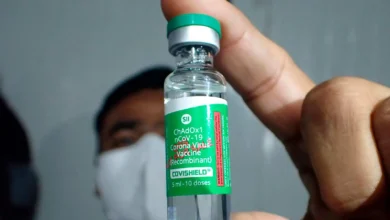India mandates QR codes on medicines, will provide vital information
India mandates QR codes on top-selling medicines from August 1 to prevent counterfeit drugs. Scanning codes ensures drug authenticity, boosting healthcare safety.

Govt of India has mandated the implementation of QR codes or barcodes on the top-selling 300 pharmaceutical brands. Starting from August 1, medicines bearing these unique codes will provide vital information, enabling consumers to authenticate their purchases.
The ‘track and trace’ mechanism aims to combat the fear of counterfeit and sub-standard medicines. By scanning the QR code, individuals can access crucial details such as the manufacturing license and batch number, the date of manufacturing, the date of expiry, and the manufacturing license number, ensuring the quality and legitimacy of the drugs they consume.
During the initial phase, the QR code will be affixed to widely-sold medications that account for approximately Rs 50,000 crore in the pharmaceutical retail market. This list includes essential medicines like antibiotics, cardiac pills, pain-relief tablets, anti-diabetics, and anti-allergics. Notable medications like Mixtard and Glycomet-GP for diabetes, Augmentin and Monocef for infections, and Pan for gastro-related issues are also part of the first batch, accounting for a significant portion of the domestic retail market valued at over Rs 2 lakh crore.
To enforce this new rule, the Drugs Control General of India (DCGI) has issued strict guidelines to pharmaceutical companies, warning of penalties for non-compliance. Pharma associations have also been urged to ensure their member companies adhere to the new regime.
While the concept of implementing QR codes on medicines was envisioned a decade ago, it faced delays due to the unpreparedness of the domestic pharma industry and the lack of necessary software and technology systems.
In a communication issued by the Central Drugs Standard Control Organization (CDSCO) in November 2022, all drug makers were notified about the mandatory implementation of QR codes or barcodes on specified drug formulations manufactured on or after August 1, 2023, regardless of the manufacturing site’s location. However, manufacturers have the freedom to voluntarily affix barcodes or QR codes on other brands if they wish to do so.


